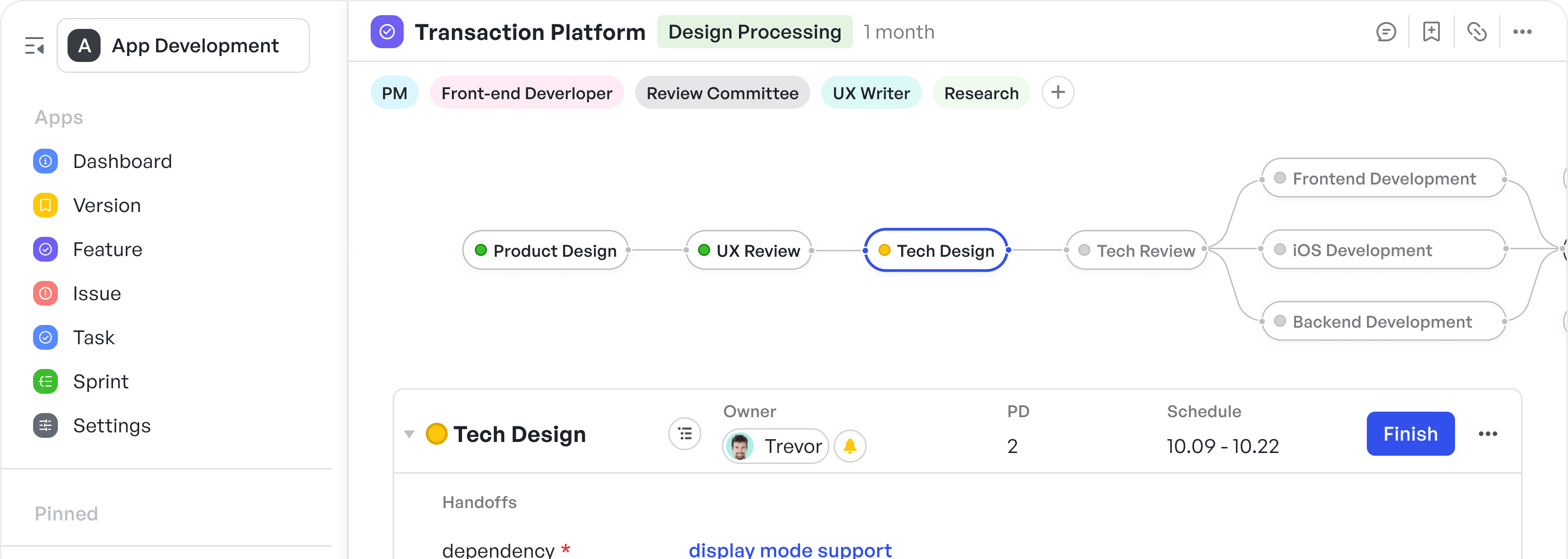Introduction
As projects grow in complexity and team structures expand across geographical boundaries, the integration of AI offers innovative solutions that boost efficiency, simplify tasks, and enhance decision-making. This pivotal shift towards AI-driven tools reflects a growing need for adaptive technologies that can meet the demands of dynamic team environments and ensure continued productivity and innovation.
This introduction to AI's role in redefining team collaboration and communication underscores the necessity of adapting to AI technologies for improved productivity and sustained innovation in any organizational context.
Advanced Communication Tools Enhanced by AI
The realm of project management and teamwork is witnessing an unprecedented transformation, thanks to AI-powered communication tools like chatbots and virtual assistants. These innovations are not mere conveniences but game-changers in how teams assign, manage, and execute tasks.
250px|700px|reset
加载中,请稍后
Chatbots and Virtual Assistants: Real-world Applications
Customer Support Transformation with Chatbots
Consider the case of a leading telecommunications company that introduced an AI chatbot to handle initial customer service inquiries. Within the first year, the chatbot successfully resolved 70% of customer issues without human intervention, according to the company's annual report. This led to a 40% reduction in the customer service department's workload, allowing staff to focus on more complex queries and improving overall customer satisfaction rates by 25%.
Project Coordination Made Easy
A global software development firm integrated a virtual assistant into their project management system to aid in scheduling and task management. Powered by NLP, the assistant could understand nuances in team members’ requests, automatically update project timelines, and coordinate meetings suited to everyone’s calendar. This resulted in a 30% decrease in time spent on administrative tasks and a notable increase in project delivery speed, as highlighted in their quarterly productivity review.
The Role of NLP in Enhancing Communications
NLP is at the heart of making AI communications tools more efficient and human-like. Its ability to understand, interpret, and generate human language has seen significant advancements, making AI tools indispensable for modern teams.
250px|700px|reset
加载中,请稍后
Streamlining Internal Communications
A finance multinational leveraged an NLP-enhanced platform for internal communications, focusing on document and content management. According to their IT department's analysis, the tool reduced the time staff spent searching for information by 50% by understanding queries in natural language and fetching relevant documents instantly. This substantial efficiency gain was credited with improving decision-making speed across departments.
Automating Routine Updates
An e-commerce startup deployed an AI system with NLP capabilities to automate daily briefings. The system collects updates from various departments, understands the progress and issues, and then compiles a concise report circulated as the morning newsletter. Six months post-implementation, the startup recorded a 60% increase in operational efficiency, with teams reporting better awareness and coordination, as evidenced in their half-yearly operational audit.
These examples underscore the transformative power of AI and NLP in enhancing team collaboration and communication. By automating routine tasks, enabling efficient information retrieval, and simulating human-like interactions, AI-powered tools are setting new efficiency benchmarks, changing the fabric of team dynamics and project management in diverse sectors.
AI in Facilitating Streamlined Collaboration
Modern project management and teamwork have entered a new era with the advent of AI-driven intelligent systems. These platforms are not just centralizing data but are actively providing actionable insights that significantly streamline collaboration, enhance decision-making, and optimize both task prioritization and resource allocation.
Intelligent Systems Centralizing Data
A global retail chain implemented an AI-driven project management platform tailored for supply chain operations. This platform centralized all supply chain data, from inventory levels to delivery timelines, across their international outlets. Through machine learning analysis, it provided predictive insights on stock replenishment and identified potential bottlenecks in delivery schedules. The outcome, as documented in their annual performance review, was a 20% improvement in supply chain efficiency and a 15% reduction in delivery delays.
Decision-Making and Task Prioritization Enhanced
In the competitive landscape of digital marketing, a multinational corporation utilized an AI platform to analyze market trends and consumer behavior data. This platform could predict the success of different marketing strategies, allowing the team to prioritize high-impact campaigns and allocate resources more effectively. The marketing department saw a 45% increase in campaign ROI, as reported in a case study featured in a leading industry journal.
Resource Allocation Optimized
AI in Software Development Projects
A software development company integrated an AI tool into their project management system to help with resource allocation. The AI analyzed past project data, current workload, and individual developer performance to recommend optimal team compositions for upcoming projects. This strategic allocation led to a 30% decrease in project turnaround time and a notable improvement in code quality, as highlighted in their quarterly performance analysis.
Personalized Learning Paths in Education Projects
An educational technology startup harnessed AI to create personalized learning paths for students based on their learning styles, pace, and performance. This approach allowed for effective resource allocation, ensuring tutors and educational materials were efficiently utilized according to student needs. The result was a 40% improvement in student performance metrics, attributed to the personalized attention and targeted learning strategies facilitated by AI insights.
These case studies underscore the transformative impact of AI in streamlining collaboration within organizations and teams. By leveraging machine learning to analyze data, AI platforms are not only enhancing decision-making and task prioritization but are also revolutionizing resource allocation practices. The synergy of AI with human expertise is paving the way for more efficient, effective, and personalized project management solutions, redefining what teams can achieve together.
The Challenges of Integrating AI into Collaboration
While the integration of artificial intelligence (AI) into team collaboration and communication promises a renaissance in project management, it is not without its challenges. The path to harnessing the full potential of AI involves navigating complex issues related to data privacy, security, and the readiness of organizational cultures to adapt to these advanced technologies.
Navigating Data Privacy and Security Concerns
Data Privacy Implications
The use of AI in collaboration tools heavily relies on the collection and analysis of vast amounts of data, raising significant concerns about privacy. For instance, an international marketing firm faced backlash when it was revealed that their AI-enhanced communication tool was inadvertently collecting sensitive client information, highlighting the thin line between useful data gathering and privacy infringement. This incident underscores the imperative need for robust data governance frameworks that protect personal and proprietary information while enabling AI functionalities.
250px|700px|reset
加载中,请稍后
Security Vulnerabilities
Further complicating the integration of AI are the potential security vulnerabilities it introduces. AI systems, with their complex data pipelines and sophisticated algorithms, can become targets for cyberattacks. A notable example occurred with a tech startup, whose AI-based project management tool was compromised, exposing project data. This incident served as a cautionary tale on the importance of implementing advanced security measures and regularly updating AI systems to defend against evolving cyber threats.
Overcoming Organizational Culture and Adaptation Hurdles
Adapting Organizational Culture
The integration of AI into team collaboration also demands a significant shift in organizational culture. Many organizations struggle with resistance to change, especially when it involves reliance on automated systems for critical decision-making. A financial services company, for instance, encountered internal pushback when introducing an AI-driven task prioritization tool, with staff concerned about the implications for job roles and autonomy. Overcoming such challenges requires leadership to champion the adoption of AI, emphasizing its role in augmenting rather than replacing human capabilities.
Fostering Team Adaptation Through Training
Another crucial aspect is preparing teams for effective AI integration through comprehensive training initiatives. A healthcare organization successfully navigated this challenge by implementing a phased training program for their AI-powered collaboration platform, focusing on developing staff understanding and proficiency before full-scale implementation. This approach not only facilitated smoother adaptation but also enhanced the teams’ engagement with the new technology, driving more innovative uses of the AI system to improve patient care and operational efficiency.
The journey to integrating AI into collaboration is fraught with challenges, necessitating a balanced approach to managing data privacy and security, reshaping organizational cultures, and investing in training. Organizations that successfully navigate these issues can unlock AI’s potential to dramatically enhance team collaboration and project outcomes, setting new standards for efficiency and innovation in the digital era.
Conclusion: Embracing the AI-Driven Future of Team Collaboration
As we stand on the cusp of this AI-driven revolution in team collaboration and communication, the call to action is clear. Organizations must proactively integrate AI technologies into their project management frameworks, championing a shift that promises to redefine the boundaries of what teams can achieve. The future of project management, illuminated by AI, beckons—a future where collaboration is not just facilitated but invigorated, setting the stage for a new era of organizational success.





